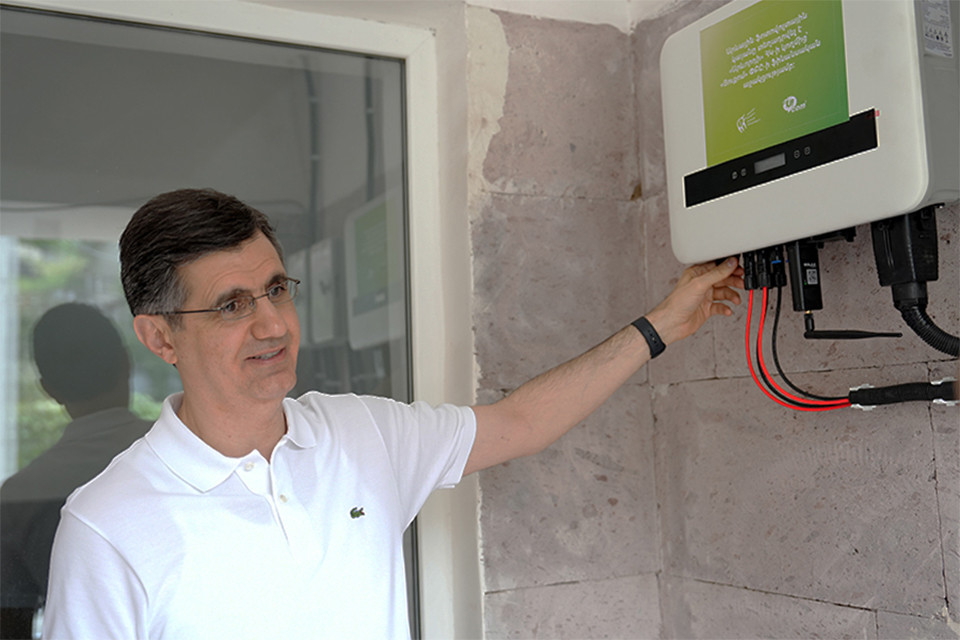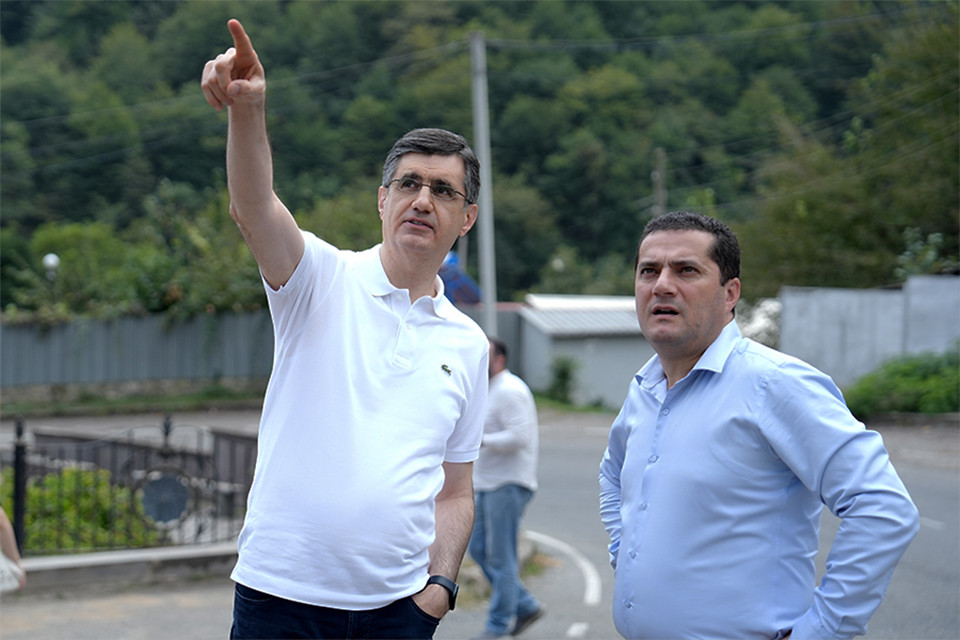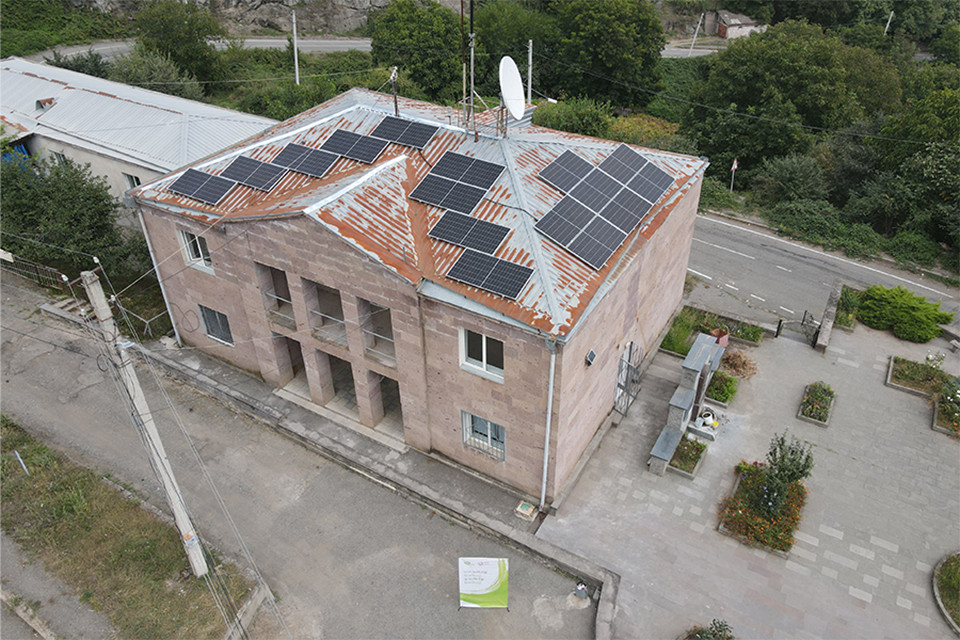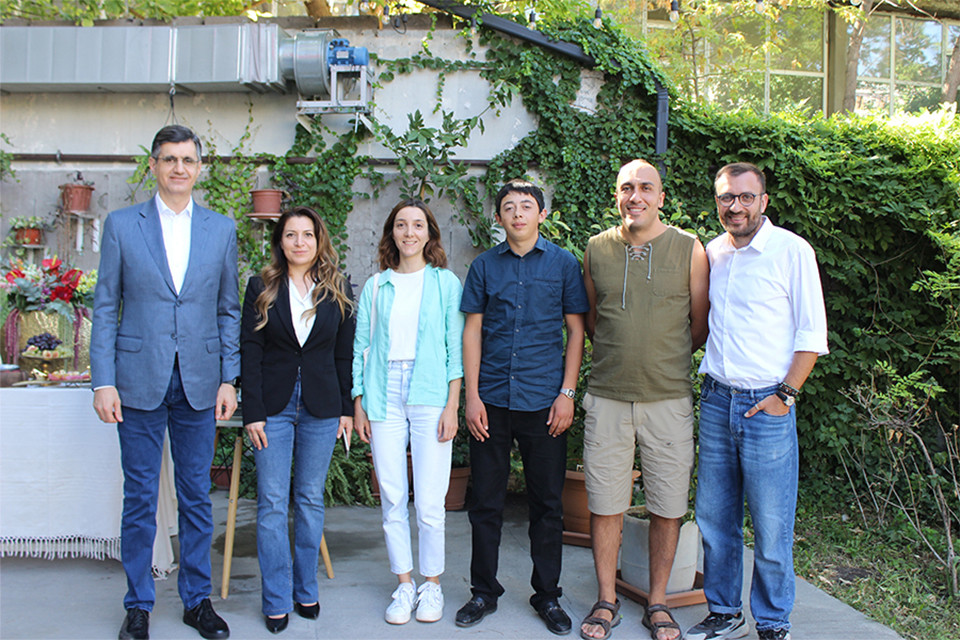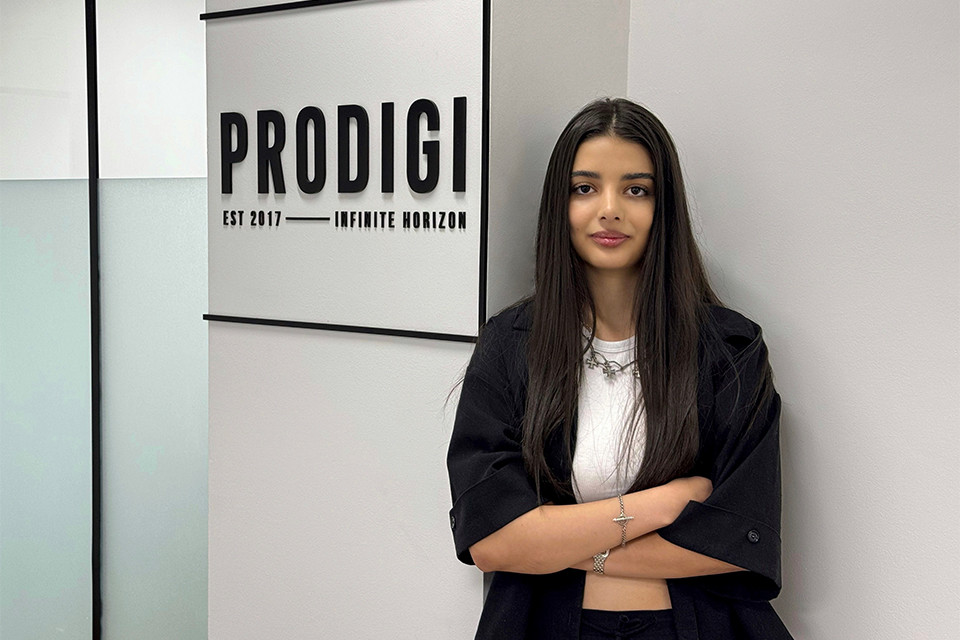11:47 | 17.09.24 | News | 15045
Ucom and SunChild NGO have installed a following solar power plant in Chakaten settlement
This time, Ucom and SunChild NGO introduced their cooperative project in Chakaten settlement of Kapan community, Syunik region. A solar plant with an installed capacity of 9.28 kWh has been installed on the roof of the Chakaten local municipality building, aimed at promoting environmentally and economically sustainable living in border areas.
The energy generated by the solar panels will be enough to cover the electricity needs of the local municipality building, as well as the settlement’s outdoor lighting, significantly reducing community expenses. Border communities like Chakaten face many challenges, often without sufficient funds to address them. Through this program, Ucom and SunChild NGO are working to help solve these issues.
"We continue our mission of making sustainable energy accessible in Armenia's regions, and we are pleased to extend our cooperation to the Syunik region. Borderline areas are particularly vulnerable, and we are confident that this partnership will greatly benefit Chakaten’s residents by helping them save money, which can be redirected towards improving the community’s living conditions," mentioned Ralph Yirikian, General Director of Ucom.
"This program not only provides support to border communities, but it also represents a significant step in promoting renewable energy and sustainable lifestyles. Using solar energy in such settlements is crucial from both environmental and economic perspectives. We are certain that this partnership will help establish new standards for sustainable development by fostering the self-sufficiency of communities, which, in turn, will improve living conditions," said Sona Kalantaryan, Director of SunChild NGO.
"The initiative implemented by Ucom and SunChild NGO is highly impactful. A 10 kW solar photovoltaic plant has been installed in the border village of Chakaten, which will directly benefit its residents. The funds saved from the generated energy will be directed towards new projects for Chakaten and surrounding areas. We are grateful to Ucom and SunChild NGO for this project, and we hope such initiatives will be continuous," said Marat Harutyunyan, Deputy Head of the Kapan Community.
The decision to install solar panels holds strategic significance. Solar energy as an alternative power source is not yet widespread in border areas, and this project serves as a model for farmers and residents to consider transitioning to solar power in the future.

17:29 | 24.09.25 | Articles
Jacopo Losso on Cross-Border Investments and Why Armenia Attracts Angels

